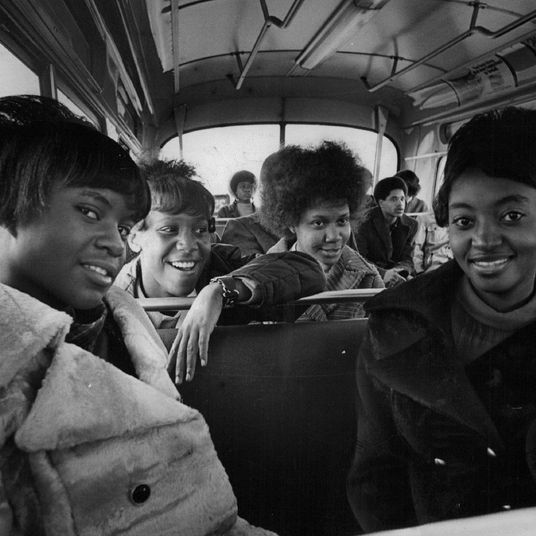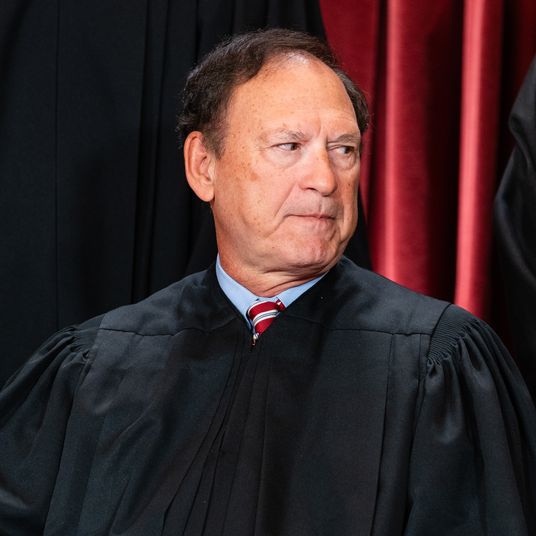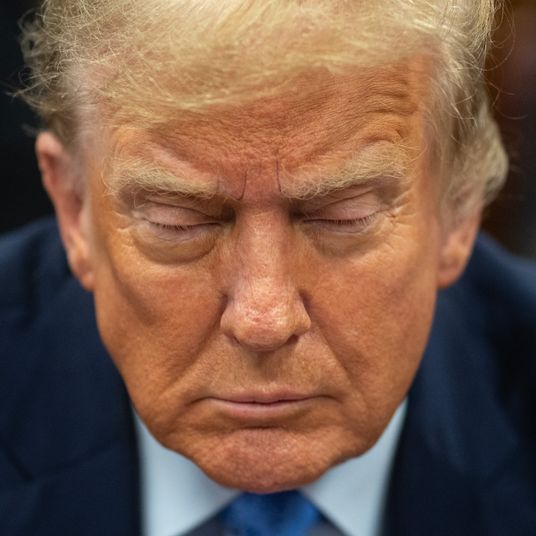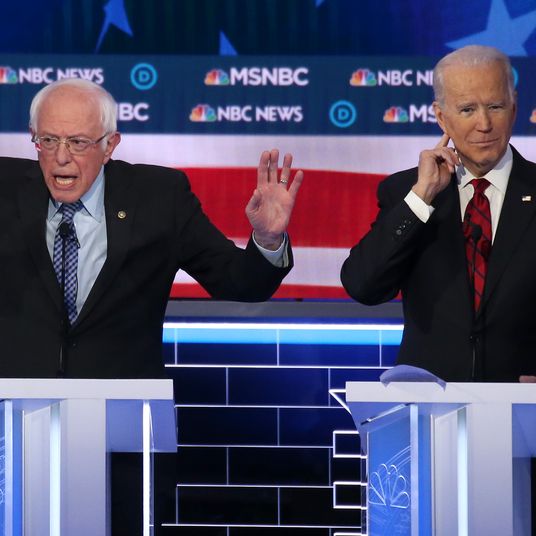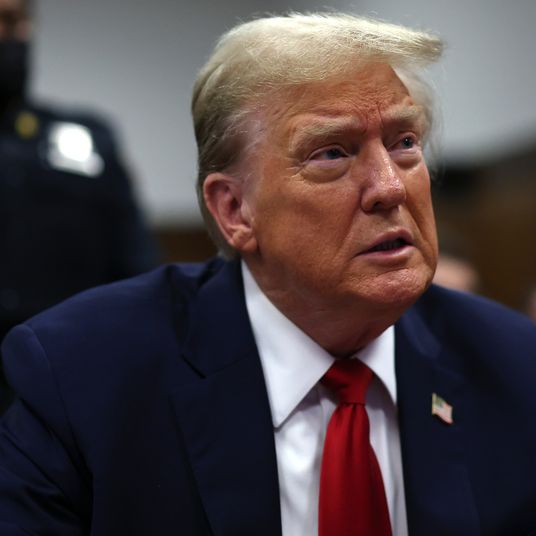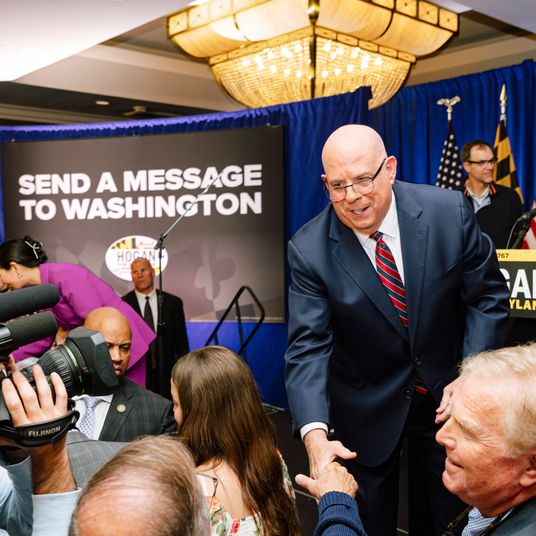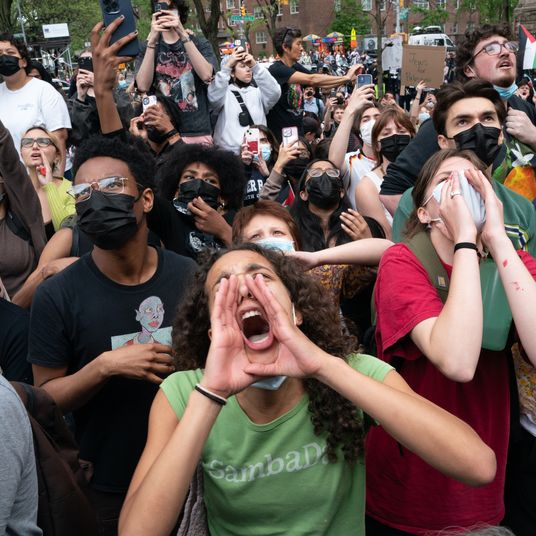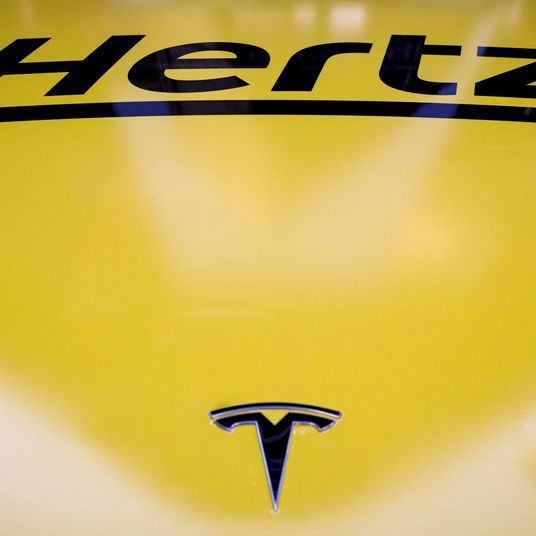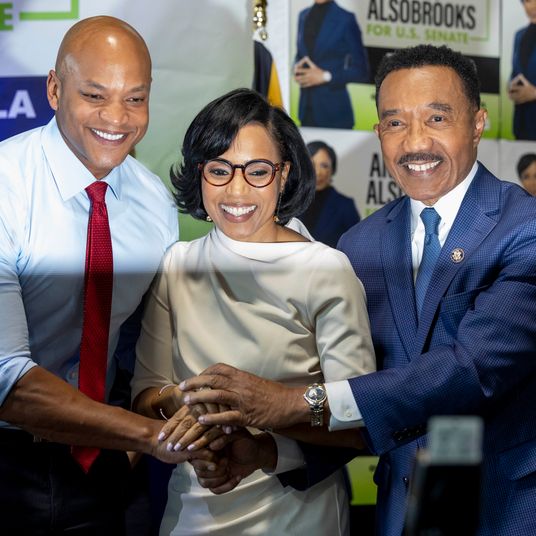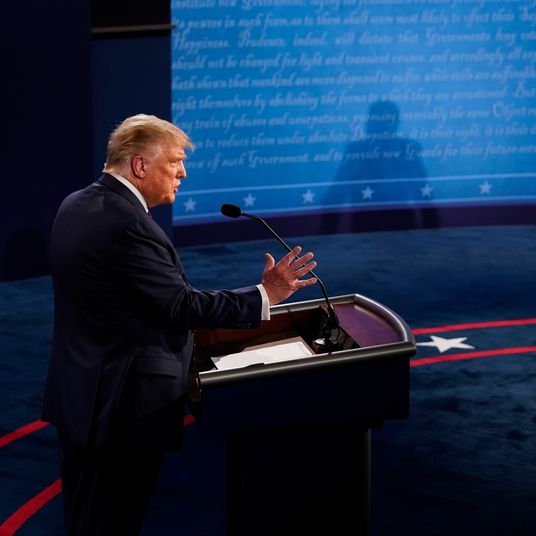
Arriving in Atlanta on a recent Sunday afternoon, I turned on my hotel room’s TV and soon saw, staring back at me, the patrician face of David Perdue. Georgia’s Republican senior senator was the target of an attack ad paid for by his opponent, Jon Ossoff, in a runoff campaign for his seat; it suggested that Perdue had traded stocks with insider knowledge of the pandemic. A few minutes later, Ossoff, who at 33 is attempting to become the youngest U.S. senator in four decades, appeared in a sunnier TV spot, talking about how he would work with President-elect Joe Biden. This was followed immediately by an attack ad on the Democratic candidate in a second Georgia Senate runoff — the Reverend Raphael Warnock of the Ebenezer Baptist Church. I walked away for a minute, and when I looked back at the TV, there was Kelly Loeffler, Warnock’s opponent and by far the richest member of the Senate, in a different attack on her pandemic stock trading. A Honda ad mercifully cut in, only to fade in to a Warnock ad featuring local police and sheriffs, soon followed by an Ossoff attack on Perdue and his support of Donald Trump.
I tuned back in the next morning and, by 7 a.m., had seen the Perdue trading spot again; an anti-Warnock ad (twice) with “defund the police” scare language; a new Loeffler clip; the Perdue-Trump ad; the Warnock sheriffs spot; and an ad tying Ossoff to various Democratic bogeymen. I tried switching over to local radio — no relief. Back on TV, I saw, in order: the anti-Loeffler ad on stocks, a different anti-Loeffler ad on stocks, an ad calling Warnock a radical, an ad calling Ossoff a radical, a pro-Ossoff ad, an anti-Ossoff ad, the two anti-Loeffler stocks ads again, the Warnock radical ad, an anti-Ossoff ad, the second anti-Loeffler ad, and the one with Perdue and Trump. I turned off the TV at 8:15.
Deborah Collura, the general manager of the local CBS station, said her advertising department was in a state of triage. “It’s almost like we’re in the ER right now, where we’re performing surgery constantly,” she told me. The station’s national sales manager has been working 16-hour days. “I’ve been in the business 37-plus years,” Collura said. “I’ve never seen anything like this.”
The saturation bombing of Georgia’s screens exceeds even what you see in Iowa or New Hampshire on the eve of a presidential primary, with ad spending almost certain to surpass half a billion dollars before voting concludes on January 5. Surrogates are flooding into the state: Kamala Harris, Mike Pence, Donald Trump Jr., Andrew Yang, Sarah Palin, Mike Pompeo, plus Marco Rubio and a pack of other senators. Well aware of the runoffs’ stupefying gravity — if Democrats don’t take both seats, Mitch McConnell will control the Senate and be able to strangle much of Biden’s agenda in the crib — Georgians have obliterated early-turnout projections. More people cast ballots on December 14, the first day of advance voting, than did so on the first day of early general-election voting, even though temperatures are plunging and COVID-19 rates spiking. Most senior Democrats I’ve spoken to think the races are a longer shot than the prevailing narrative of their being neck and neck (and neck and neck), but Trump’s shambolic attempt to steal the White House has played into their hands. After one of the president’s more outrageous maneuvers in court, a high-ranking Democrat in the state told me, “As awful as I felt as an American yesterday, I was fucking thrilled.”
It’s easy enough to see Georgia as the unholy culmination of the Trump years — a battle royale to deliver one final referendum on the 45th president. “It’s not the first post-Trump race,” said Whit Ayres, a Republican pollster. “It’s the last race of the Trump presidential era.” Strikingly, none of the players in the Georgia races are ready to let Trump go. The Democrats are campaigning, explicitly or implicitly, on a message of repudiation, and yet Trump and his mishandling of the pandemic have far and away been their most useful tools for turnout. The Republican candidates show tentative signs of wanting to separate from their alpha — Loeffler and Perdue have tried to avoid fully embracing Trump’s rigged-election fantasies — but neither has delusions of possessing enough star power on their own to counter the Democrats’ momentum. As for Trump, now that the Electoral College has voted and even McConnell and Vladimir Putin have congratulated Biden, he needs victory in Georgia more than ever — both to demonstrate he still has political vitality and as a first step in flipping the state back to red if (when) he runs again in 2024.
This dynamic of political codependence has persisted even though Trump, of course, would never admit to depending on anyone. The president — the first GOP candidate to lose Georgia’s electoral votes since 1992 — has been stoking a vicious war with Brian Kemp, the state’s Republican governor and, until recently, one of his closest allies. It seems to be animated by something other than concern for the future of his party, whether spite or recklessness or some other vector of the id. “I’m ashamed that I endorsed him,” Trump said at one point, irate that Kemp hadn’t been doing more to help him invalidate Biden’s win. He escalated the pressure by insisting on Twitter that the “hapless” Kemp cancel the runoffs altogether. L. Lin Wood, a Trump-aligned lawyer in the state, led locals in “Lock him up!” chants about the governor and threatened to withhold his vote, while Sidney Powell, another Trump-adjacent attorney, spread the theory that Kemp had been bribed by a voting-machine company that was really a front for Hugo Chávez, the Venezuelan strongman who has been dead for seven years. Operatives in Roger Stone’s orbit started trying to get Georgia right-wingers to write in Trump’s name on their ballots instead of the senators’. (The state has no write-in option in runoffs.)
Democrats may process all this as their good fortune, hoping that Trump will convince his followers that our elections really are rigged by sinister forces and that it would therefore be pointless to even try pulling the lever for Republicans in January. But for most GOP stalwarts, it probably sounds less like Trump is telling them to forget about voting and more like he’s engaging in his customary hardball. (Never mind that the public servants running Georgia’s voting apparatus now find their lives in danger as a consequence. A seething Gabriel Sterling — a top state election worker and former local Republican official — called a press conference to reveal that the secretary of state and his family had received targeted threats, that Sterling himself now needed police protection, and that an election contractor had been threatened with a noose.)
When Trump arrived to headline a rally at Valdosta Regional Airport, near the Florida border, he conceded that Republicans should cast ballots. “If you don’t vote, the socialists and the communists win — they win,” Trump told the mostly maskless crowd. Still, stumping for Loeffler and Perdue was clearly a sideshow. Trump-branded signs outnumbered ones for the Senate candidates by an order of magnitude as he insisted he had won the state in November. When Loeffler spoke, the crowd loudly chanted at her: “Stop the steal!” Perdue was nearly drowned out by cries of “Fight for Trump!”
Unsurprisingly, Biden’s own outdoor appearance in Atlanta was a far more on-message to-do. “I need two senators from this state who want to get something done,” he told a crowd parked in their cars. “Not two senators who are just going to get in the way.” A couple of minutes elapsed before the audience was riled up enough to honk.
Here’s the consensus view from the four campaigns, plus longtime political observers still coming to terms with the purpling of Georgia: You’d rather be a Republican running for reelection right now than a Democratic challenger, but only by a hair. Polling is within the margin of error in both races, and while general-election forecasting in Georgia was more accurate than in other states, few operatives really trust the numbers. Democrats appear to have the momentum, given that Biden triumphed by amassing large margins in Atlanta, especially among Black voters, and overperforming in its suburbs. But Biden still squeaked by with just 0.2 percent, or roughly 12,000 votes: his tiniest edge in the country.
To win, the Democratic candidates must perform substantially better than they did in November. Georgia law requires Senate candidates to capture 50 percent of the vote to avoid a runoff, and Perdue only barely missed that mark in beating Ossoff. In the other race, multiple Republican contenders, led by Loeffler, combined to get slightly more votes than the Democrats, led by Warnock. Few expect a split result in January, and both sets of candidates are essentially running arm in arm: They’re appearing together, messaging together, and skewering each other’s opponents.
Four million Georgians are expected to cast ballots by January 5 — beyond all precedent for a runoff — and the political energy is warping the state in unexpected ways. On a Thursday night late in November, the Atlanta rappers Jeezy and Gucci Mane sat on black leather thrones on a stage inside the Magic City strip club, separated by a bunch of Cîroc bottles and a large digital display. More than 1 million people were tuned in to Instagram Live to watch them address their 15-year feud and do musical battle, and as the show started, a surprise guest popped onto the screen. “Hi! This is Stacey Abrams!” said the woman who narrowly lost the voter-suppression-tainted 2018 Georgia gubernatorial race to Kemp, turning herself into a political celebrity in the process. The widespread belief that her years of organizing in the state played a decisive role in delivering Georgia to Biden has only vaulted her higher in the Democratic firmament.
After a little banter — Gucci asked if Abrams could wipe his criminal record — she turned to the election. “Right now,” Abrams said, “we can at least make sure that everyone shows up to vote, so we have two senators, to make sure we have COVID-19 response, and we’ve got stimulus money coming back to Georgia.” Jeezy cut in, “That’s right. We got you, baby. Let’s get it, G-A. You know we gonna stand up for you.”
Abrams also moderated a virtual campaign event for Warnock and Ossoff with Barack Obama. “A big part of winning a runoff for Democrats is educating new voters and low-propensity voters, who traditionally have not voted in an election like this,” she told me recently. “We meet people where they are. We have been deeply invested in groups that have the cultural competency, that explain the system to new voters.” Georgia Democrats have extensively tested to see which surrogates rate highest with the electorate, and both Obama and Abrams herself are often at the top of the list, even when celebrities — Oprah, LeBron James — are included. If Chuck Schumer had had his way, Abrams would be on the ticket as a candidate; he failed, despite months of trying, to persuade her to run, and Abrams helped recruit Warnock as an alternative. (She is said to be more interested in a rematch with Kemp in 2022.)
Exactly how much credit Abrams deserves for flipping Georgia for Biden is hotly contested among political nerds, some of whom have pushed back against the adulation she’s received on social media. In the context of the runoffs, though, there is no disputing that Abrams is more famous than all four candidates combined, and she has been hyperinvolved to the point that the races now belong to her as much as to Ossoff and Warnock. Much of her work has been directed at combating Republican voter-suppression tactics in the courts and the state legislature, but she has also helped direct Democrats’ organizing, messaging, and fund-raising, often putting her own stardom to work. Early in December, Kerry Washington hosted a virtual concert for supporters of Abrams’s organization; performers included Justin Timberlake, Ludacris, Common, John Legend, and Lin-Manuel Miranda.
The flood of outside attention is just catching up to a transformation Georgia Democrats have been talking about for more than a decade. The state has seen a boom in Black voter registration and engagement, a suburban swing away from the GOP, and exploding Latino and Asian American populations. But it still takes good candidates for Democrats to compete seriously.
Ossoff — who likes talking about his early-career work as a Capitol Hill staffer for John Lewis and Hank Johnson — is a known quantity around Atlanta. His unsuccessful 2017 bid for Congress turned into a national referendum on the new president, making him one of the Trump era’s first #resistance heroes. Yet his age and inexperience have been consistent liabilities. Ossoff, who is the CEO of a company that produces documentaries, plays up his work as an investigative journalist, but he was still in graduate school as recently as 2013.
Warnock, who would be Georgia’s first Black senator, is popular across liberal constituencies in the state, thanks to his prominent position in a job once held by Martin Luther King Jr. He’s been working to win over the kinds of suburban voters who can’t stand Trump and like to think of themselves as moderates — and who might be scared off by Republicans’ racialized portrait of Warnock as an extremist and acolyte of Jeremiah Wright, Obama’s former Chicago pastor. In one recent TV ad released by his campaign, a smiling Warnock walks his beagle down a suburban street with actual picket fences and indicates what he thinks of those attacks by tossing some dog shit into the trash.
Both Ossoff and Warnock would plainly rather be following the standard late-Trump-era playbook and talk about health care and COVID-19 relief, but each has had to defend himself in recent weeks from escalating GOP broadsides. Both candidates are frequently painted as far-left, Green New Deal–loving, “defund the police”–screaming revolutionaries. (Neither supports either.) Warnock has faced both the highest volume of attacks and the nastiest, which caricature him as a Marxist revolutionary. One recent line of vilification ties him to Fidel Castro because Warnock was a youth pastor at a New York City church that hosted the Cuban dictator in the 1990s, though Warnock says they never met. Ossoff stands accused of having shady ties to China because his media production company received more than $5,000 for licensing rights from a Hong Kong–based company whose chairman opposed protesters there.
For the most part, Democrats aren’t playing defense. They’ve dedicated the bulk of their messaging budget to attacks — an easy task against two senators accused of using privileged information about the pandemic to their financial benefit. More than motivating Democrats, the strategy is to demoralize on-the-fence Republicans. Perdue, who is among the Senate’s wealthiest members and easily its most active stock trader, has come under particularly intense scrutiny. The Times recently reported that the Department of Justice investigated him for suspicious trading after he sold north of $1 million in stock in a financial firm, though he wasn’t charged. In another era, allegations of this level of self-dealing might have ended a politician’s career — making the runoffs one of the first tests of whether Trump’s time in office has destroyed those standards for good.
Corruption has been a rich vein of argument for both Democrats. “While we were busy sheltering in place, Kelly Loeffler was busy sheltering her own family’s considerable portfolio,” Warnock said at one Zoom press conference. “She used her considerable privilege of knowing what the rest of us didn’t know to protect her family’s portfolio while leaving the people she was said to represent in harm’s way.” Ossoff called Perdue “a crook” at a general-election debate in October; the senator then canceled their final general-election matchup and opted not to show up for their runoff debate in December, handing Ossoff a night of unchallenged airtime opposite an empty podium.
As Democrats nationwide second-guess their decision to refrain from full-scale door-knocking in the last weeks of the November contest, the campaigns have joined some liberal groups in Georgia in resuming limited in-person organizing, even with Georgia infection rates climbing to a moving average of more than 5,000 new cases a day. Still, following Biden’s lead in aiming to model safe behavior during the pandemic — and wary of hosting superspreader events à la Trump — local Democrats have primarily concentrated their in-person efforts on distanced events, holding occasional rallies but, even then, requiring voters to stay with their cars.
While Democrats at the national level have come down from November’s victory rush — rattled by Trump’s attempt to steal the White House and indifferent to many of Biden’s Cabinet picks — the Georgia branch of the party is still surging. “There were some people who have always voted for Democrats in Georgia, and they didn’t believe Joe Biden could win,” Rashad Richey, a popular radio host, told me. This fall, a range of Atlanta’s Black-focused radio stations collaborated for the first time on a voter-registration and education drive. “I hear this from my callers: They went to sleep [on Election Night] thinking Trump won Georgia. But once the absentee votes started coming in — that’s the way they voted — they saw those numbers coming in. So now they feel more empowered than ever before. If you thought the energy was strong before, it’s even stronger now, because they got a taste of victory.”
Republicans could hardly be any more fired up themselves. Biden’s Electoral College victory had barely been declared by the networks when Schumer gave the GOP a gift. On the afternoon of November 7, in front of a jubilant Brooklyn crowd, Schumer — who would become majority leader if Democrats take both runoffs — belted out: “Now we take Georgia, then we change America!” Within minutes, GOP operatives started circulating the clip as a warning: Perdue and Loeffler are the final bulwarks against full pinko control of Washington.
The claim was easily incorporated into a Karl Rove–funded messaging machine that has gone fully apocalyptic. One day in Georgia, I caught up with Buddy Carter, a GOP congressman who represents the Savannah area. “Chuck Schumer has said, ‘We win Georgia, we change the world,’ ” Carter said. “Well, we need to make sure we win Georgia because we like the world just like it is. I’m not interested in changing it. I’m not interested in socialism! Because that’s what the Democrats want.” Loeffler likes to go further. She has recently taken to warning that if Warnock and Ossoff win, it would “literally shred the fabric of what makes our country the greatest in the world.”
In the months leading up to the November 3 election, both Loeffler and Perdue drew closer to Trump to ensure full turnout from his voters. At one point, at a Trump rally in Macon, Perdue referred to Kamala Harris as “Ka-MAla, or, what? Kamala? Or Ka-MAla, Ka-MAla-mala-mala, I don’t know, whatever.” This was a few months after his team was forced to take down a Facebook ad that had enlarged Ossoff’s nose and accused him and Schumer, both of whom are Jewish, of trying to “buy Georgia.” Loeffler — whom Kemp appointed to the Senate in 2019 in part because he thought she might appeal to suburban moderates — has meanwhile taken a severe right turn, running ads comparing herself to Attila the Hun and embracing the endorsement of a soon-to-be congresswoman who subscribes to the QAnon conspiracy theory. An owner of the WNBA’s Atlanta Dream, Loeffler doubled down on her opposition to the Black Lives Matter movement after players across the league endorsed Warnock to protest her.
Since November 3, though, Loeffler and Perdue have attempted to keep the focus on their own races — without completely turning off Trump loyalists convinced the president was the victim of a diabolical conspiracy. “They can’t worry about what’s going on on the Trump side. It is somewhat of a distraction; I’m sure they get asked about it every day. But they can’t be bothered by it,” said Saxby Chambliss, a Republican who retired from the U.S. Senate after two terms in 2015. “It’s not hard for them to campaign on the fact that they’re going to be 51 and 52” in the chamber. “That’s what it’s all about.”
Perdue and Loeffler largely agree: Their path to victory relies heavily on not just turning out Trump’s hard-core fans in the rural parts of the state but also holding on to traditional white Republicans who don’t all love the president yet in many cases still call themselves conservative. Some who voted for Biden may be persuadable to return to the GOP at the Senate level. In part, the strategy calls for scaring college-educated suburban voters with the prospect of a Washington completely run by lefties, which is why so much of their messaging accuses Ossoff and Warnock of radicalism — largely by sifting through Warnock’s sermons for any even remotely inflammatory passages — and lumps them in with Alexandria Ocasio-Cortez, Nancy Pelosi, and Schumer. If there are any remaining voters who think D.C. would function better with a split-party government, Perdue and Loeffler are desperate to find them. And they aren’t letting the pandemic slow them down: Both the candidates and their surrogates are campaigning plenty in person and attempting to draw big crowds.
So far, it hasn’t been enough. Perdue — who’s been campaigning in a jean jacket and touring the state in a bus branded WIN GEORGIA. SAVE AMERICA — was interrupted five minutes into a campaign talk at a gun club in Griffin by a man who yelled, to applause, “What are you doing to help Donald Trump and this fraud case?” Soon after, Ronna McDaniel, the Republican National Committee chairwoman, was shouted down by Marietta voters insisting she do more for Trump. “How are we gonna give money and work when it’s already decided?” one asked. Wood, the Trump-aligned lawyer, who has called COVID “partisan” because more Republican than Democratic lawmakers have contracted it, made the threat of abandonment explicit: “Why are they doing little or nothing to support efforts by GA citizens to address unlawful election & need for @BrianKempGA to order special session of legislature?” he asked of Perdue and Loeffler. “If not fixed, I will NOT vote in GA runoff. Will you?”
Attempts to redirect attention have had mixed results at best. When Loeffler appeared for the first time with Doug Collins, a hard-core conservative congressman she had edged out in the first round of voting for the Senate seat, he promptly made brutal headlines. “There is no such thing as a pro-choice pastor,” Collins said of Warnock. “What you have is a lie from the bed of Hell. It is time to send it back to Ebenezer Baptist Church.”
The Democratic candidates’ most reliable voters are paying attention to remarks like that. A huge portion of the party’s supporters in Georgia are Black — not just in Atlanta but in other cities, like Augusta, and in rural pockets — and both are spending a lot of time making sure they get full turnout from this group, in part by relying on testimonials from Abrams and Obama. But each is also hoping to hang on to the kinds of (often white) moderates who drifted away from the GOP during the Trump years and voted for Biden, including in the sprawling suburbs of Atlanta. This is why their ads speak positively about Biden and tie Loeffler and Perdue to Trump, specifically in the context of the pandemic and 300,000 dead Americans.
Biden advisers have sent money and campaign aides to Georgia. But back in D.C., they’re puzzling through how much of the president-elect’s agenda they could implement unilaterally if the Republicans in Georgia prevail. Reckoning with the virus is just the first matter on Biden’s to-do list, which in theory includes an enormous economic stimulus, immigration and health-care reform, and historic environmental investments. “I’m really worried about whether Mitch McConnell will intentionally try to submarine the country in 2021 like he did in 2009,” Democrat Chris Murphy, the Connecticut senator, told me recently.
By mid-December, McConnell was finally referring to Biden as the president-elect and moving toward passing a COVID-relief bill after months of refusing to budge. But anyone holding out hope that McConnell and his party are at long last accepting the inevitability of a Biden administration need only look at Georgia. On the same day that Republicans finally appeared on the cusp of compromise on Capitol Hill, Loeffler faced reporters. (For months, she and Perdue have refused to tell the media basic information such as the time and location of their campaign events.) Standing under an umbrella, Loeffler revealed that she had spoken with McConnell that morning. A journalist asked, Would she now acknowledge that Biden had won? Three times in a row, Loeffler dodged the question, pivoting to talk about Trump’s “legal recourse” and the COVID bill. The fourth time she was asked, Loeffler started to break the fourth wall. “Look,” she half-pleaded, “my focus is on winning this race right now.” The fifth time, she shot back, “Look, there’ll be a time for that,” and then caught herself, lest she be seen as crossing the president. “If that becomes true,” she clarified. It wasn’t delusion. The Georgia Republican just cannot quit Trump, or at least not until January 5.
*This article appears in the December 21, 2020, issue of New York Magazine. Subscribe Now!










